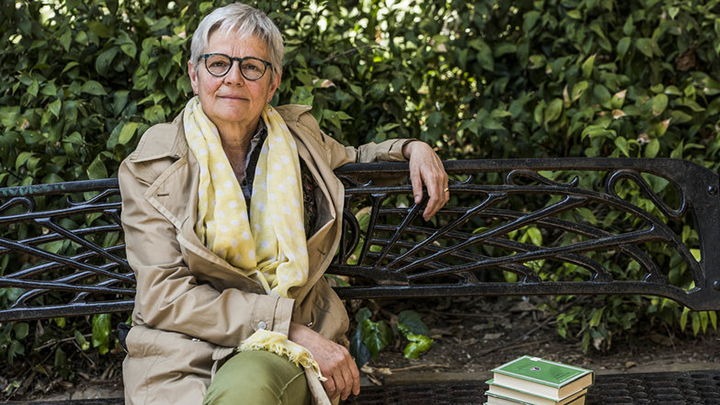Professor Lola Badia wins the Serra d'Or Award


Professor Lola Badia has won the Translation Prize for her work on La mort del rei Artur, a classic of the Western novel from the early 14th century that tells the end of the kingdom of Logres, the court of Camelot and the Round Table; in other words, the end of King Arthur and the cream of the heroes who for centuries, in the collective imagination, have embodied the essence of chivalry: Lancelot, Galvany, Bohort, Sagremor the Unforgiving and so many others, accompanied by the wizard Merlin, the Morgan le Fay and Queen Guinevere.
Badia had previously published Tres contes meravellosos del segle XIV (2003), a translation of three fantastic tales written in verse in the Occitanised Catalan typical of the poetry of the time, and Galvany i el Cavaller Verd (2022), a translation of an old English tale, also in verse, from the 14th century.
Lola Badia (Barcelona, 1951) is an emeritus professor of Catalan Literature at the University of Barcelona. Her career as a teacher and researcher has opened up numerous lines of research and she has created an important school of literary studies, establishing extensive relations with international scholars.
Her research has focused mainly on poetry and narrative in the troubadour tradition, the literary culture of Catalan writers of the 14th and 15th centuries, the work of Ramon Llull and the scientific heritage in the vernacular language. She founded the Ramon Llull Documentation Centre at the University of Barcelona and coordinated, with Albert Soler, the Ramon Llull Database. She is the author, together with Anthony Bonner, of Ramon Llull. Vida, pensamiento y obra literaria (1988) and, with Joan Santanach and Albert Soler, of Ramon Llull as a Vernacular Writer. Communicating in New Kind of Knowledge (2016). She is also the editor of Comienzos de medicina. Tratado de astronomía (2002), by Ramon Llull, among many other titles.
Together with other Lullists, she edited the proceedings of the opening and closing congress of the Llull Year (2018, UB Editions and University of the Balearic Islands). Badia has also excelled in the critical edition of classics, especially Valencian classics, and in translations, with works such as Poesia catalana del s. XIV. Edició i estudi del Cançoneret de Ripoll (1983); the translation of Guillem de Conches' Dragmaticon philosophiae (1997), and the critical editions of Bernat Metge's Lo Somni (1999) and Curial e Güelfa (2011). She currently coordinates the Seminar on Literature and Culture of the Middle Ages and the Modern Age (SLIMM), and is the head of the Consolidated Research Group on Medieval Catalan Literature and Culture. She is a full member of the Real Academia de Buenas Letras de Barcelona, and in 2000 the Government of Catalonia awarded her the Narcís Monturiol Medal for scientific merit.
Also, the Serra d’Or Critics' Prize for the Performing Arts 2024 for the best theoretical contribution has been for the 1st International Symposium "Catalan Women Playwrights of the 21st Century: Creation, Translation and Criticism". Organised by Gemma Pellissa and Adriana Nicolau, it took place at the Josep Carner building of the UB last September, with the aim of bringing together perspectives from academia, criticism and the profession.
The Serra d’Or Critics’ Awards, of great prestige in the Catalan cultural sphere, have no financial award. They consist essentially of the announcement of the verdict and the awarding of a golden serreta, which represents the distinction granted by the magazine. The winning works are chosen directly by the jury, without having been submitted to a competition. Established in 1967, the prize honours work in the fields of literature and essays, research, the performing arts and children’s and young people’s literature.
